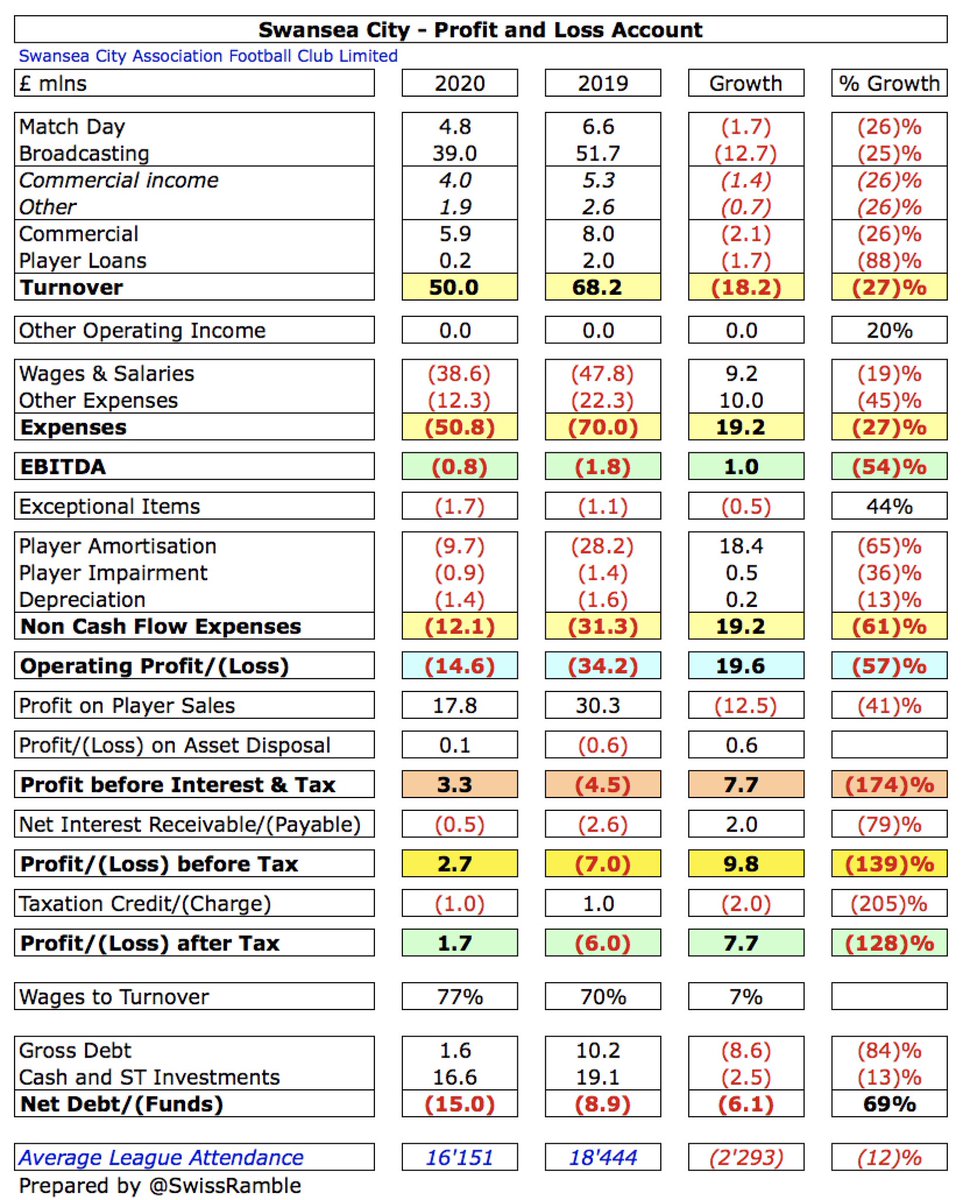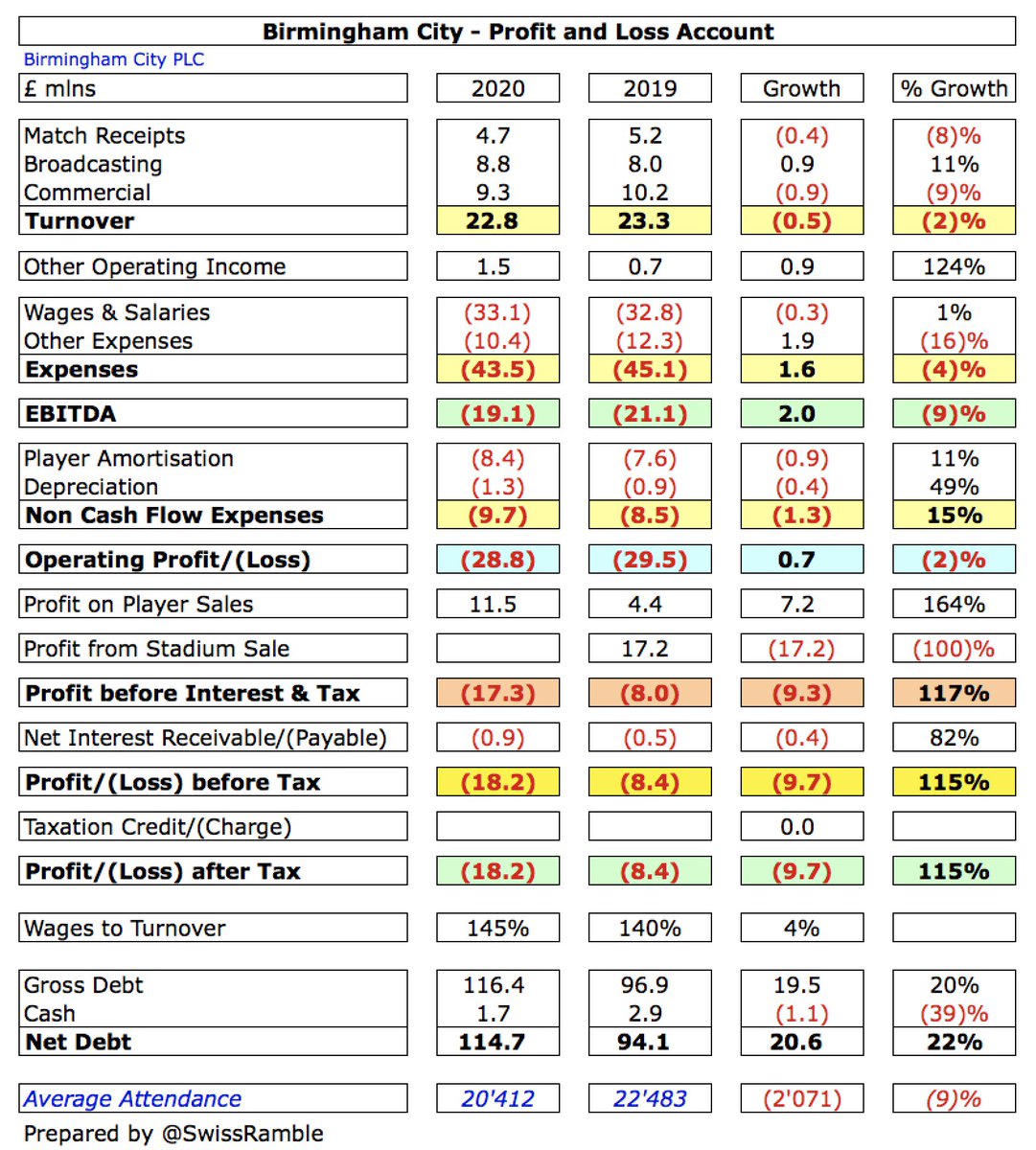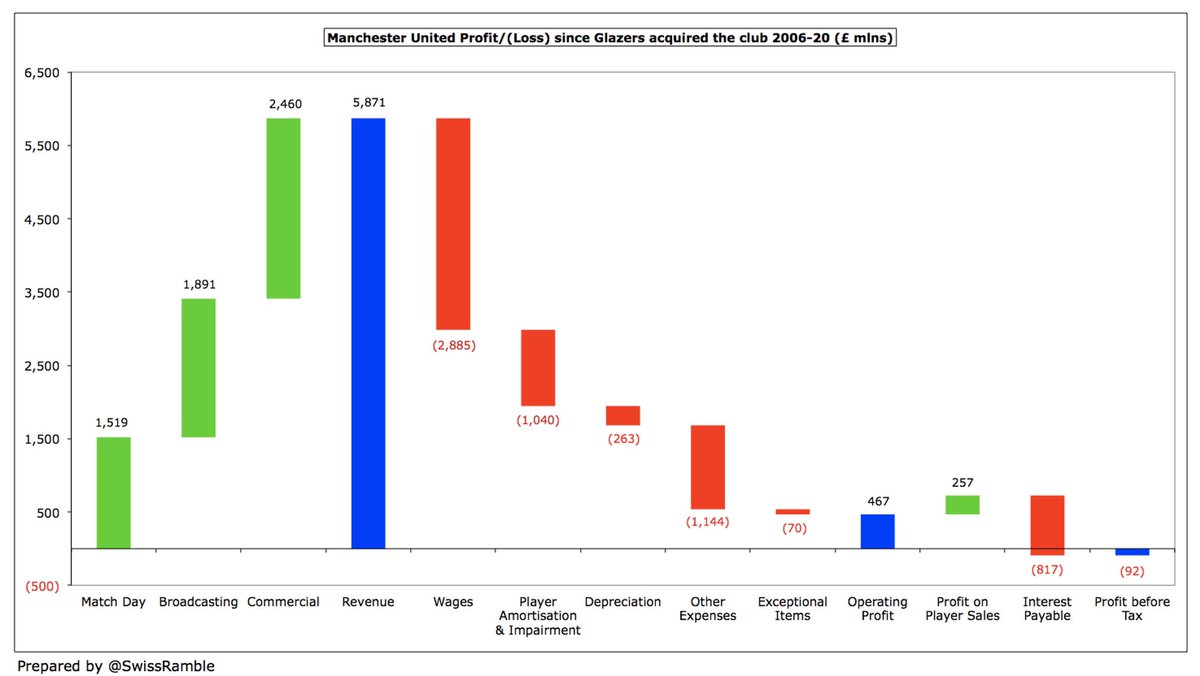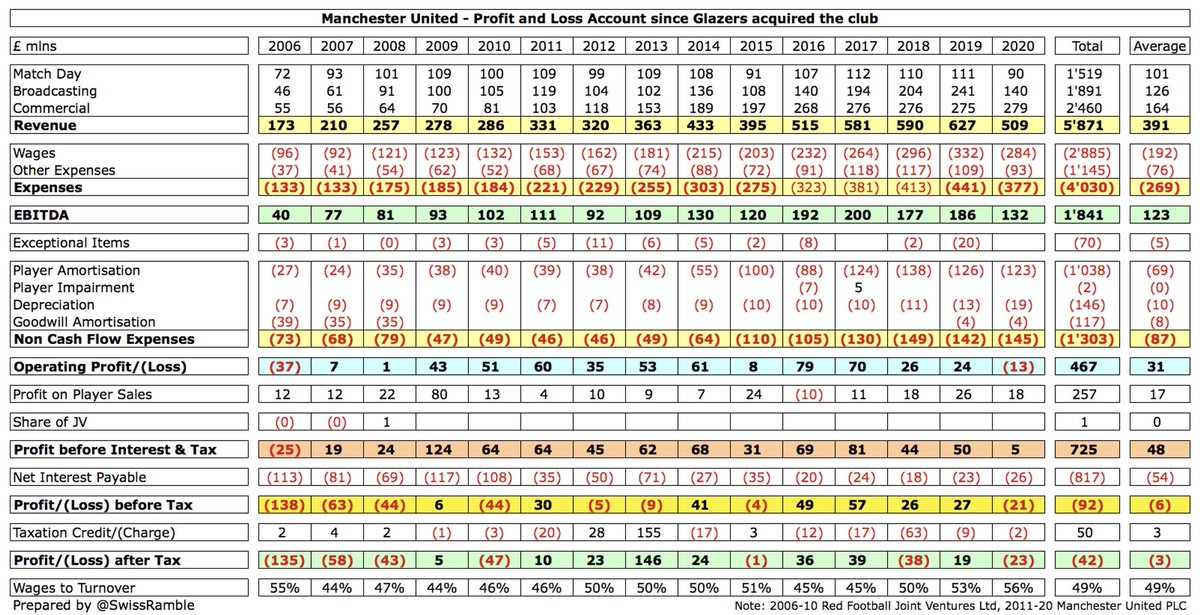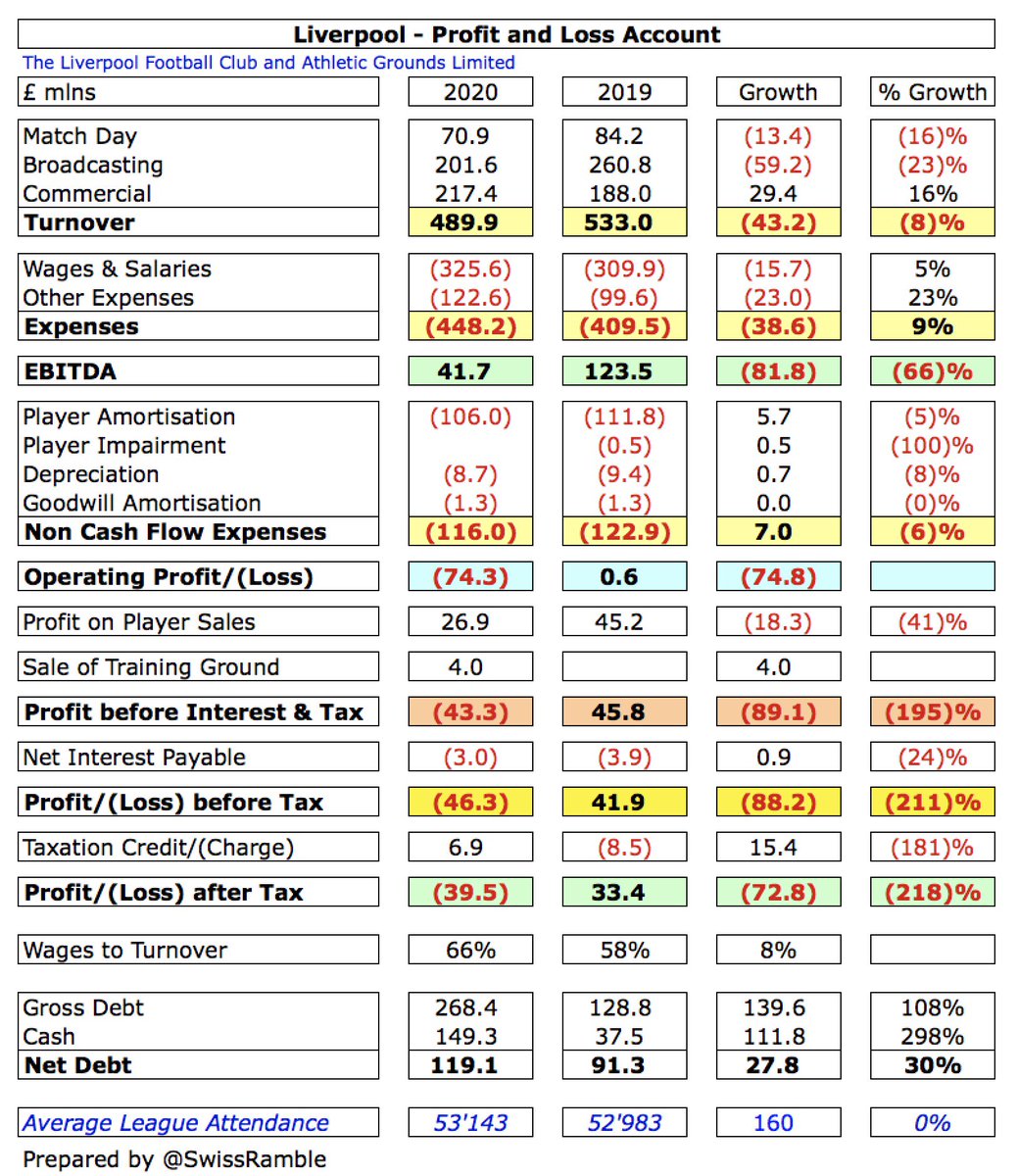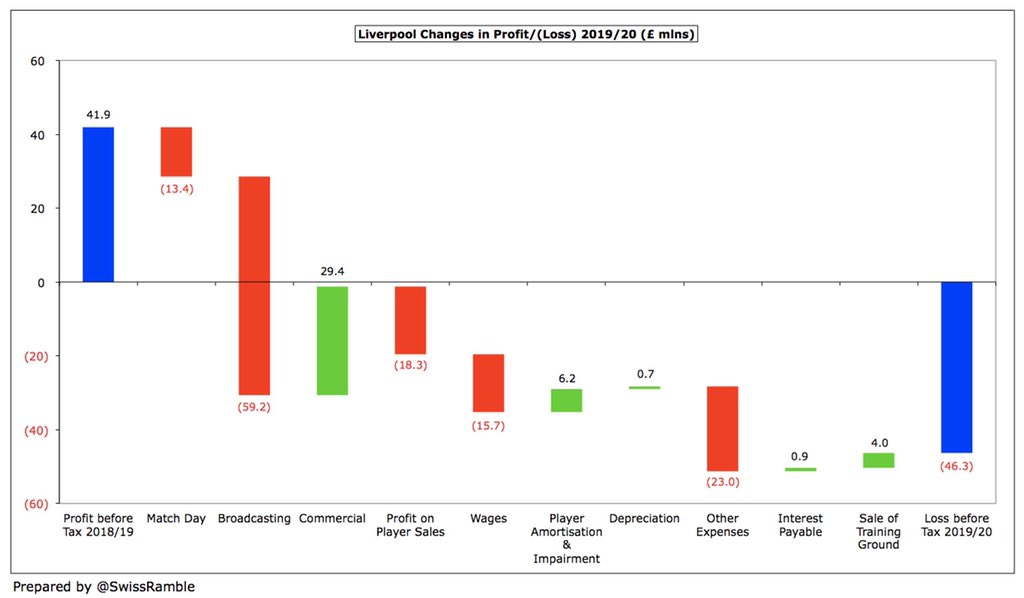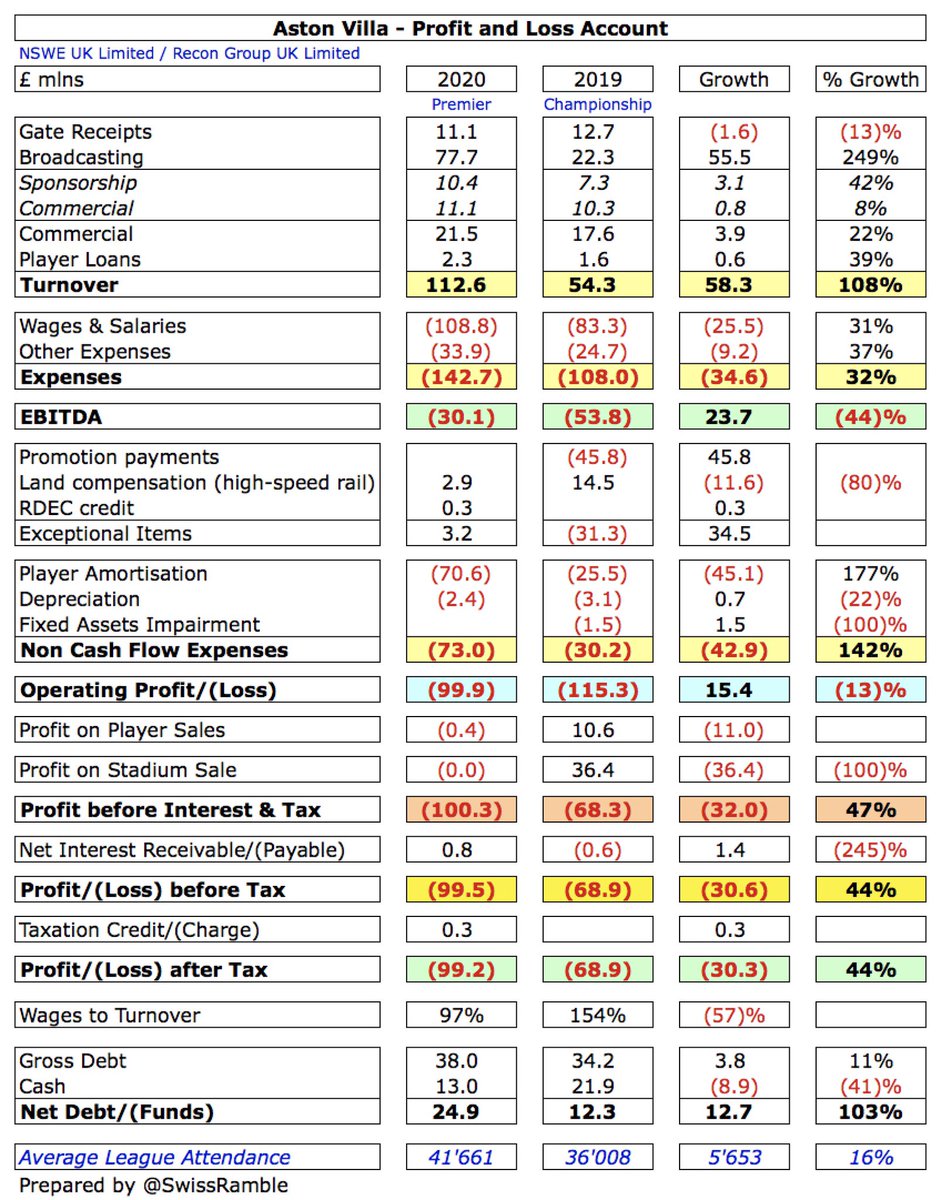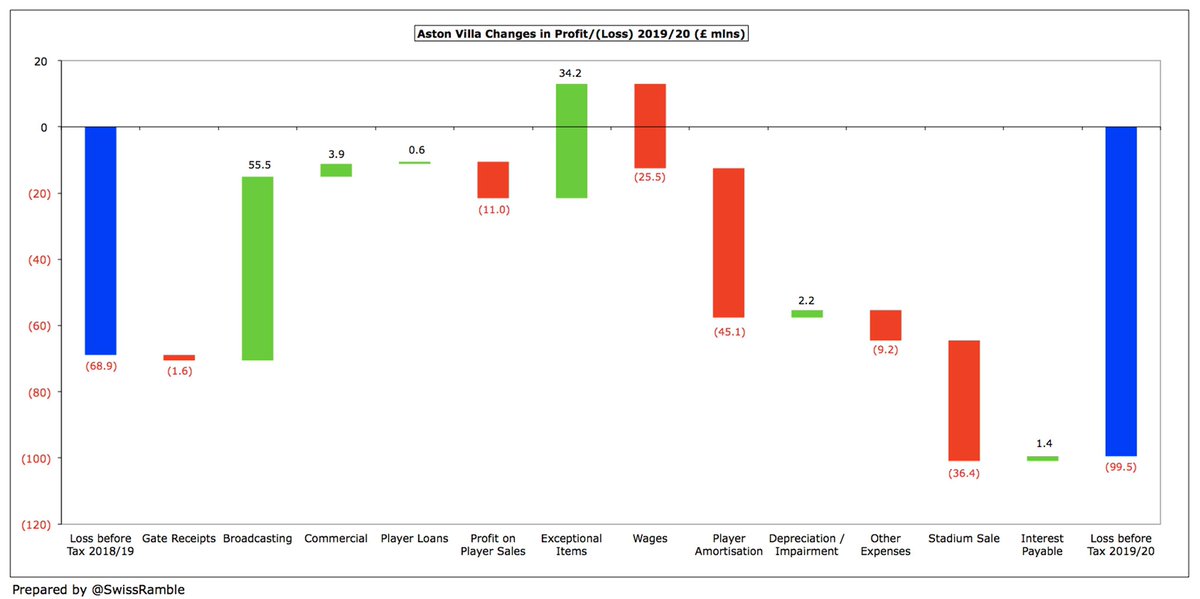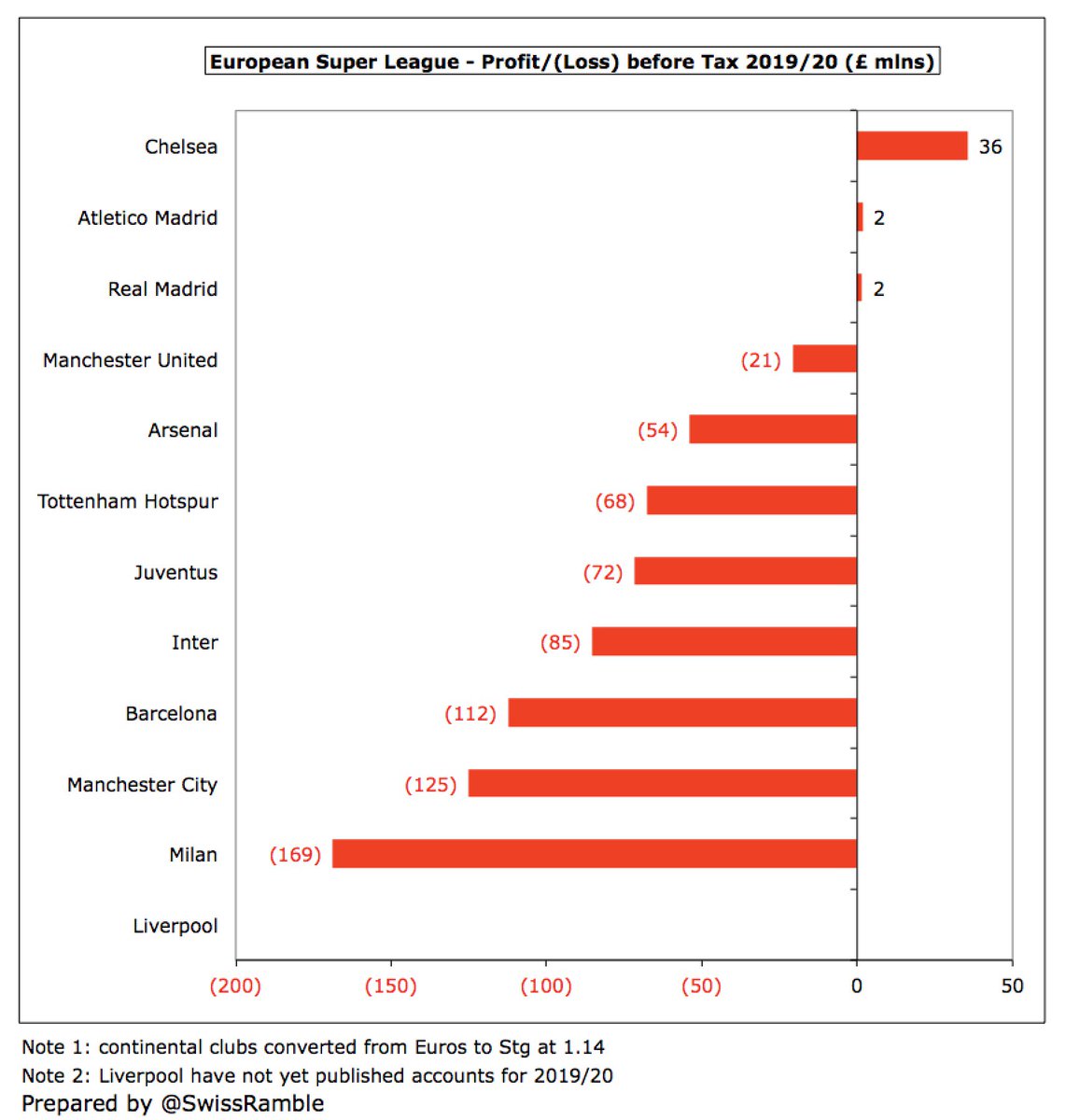
Quick estimate of the revenue earned by English clubs from Europe this season up to the final. This analysis is based on the participation fees, prize money and TV pools from 2019/20 distributions plus the UEFA coefficients for 2020/21 #MCFC #CFC #LFC #MUFC #AFC #THFC #LCFC
#MCFC and #CFC have both earned over €100m after reaching the Champions League final with €120m and €117m respectively, followed by #LFC €89m and #MUFC €76m. Europa League clubs receive significantly less: #AFC €29m after reaching semi-final, #THFC €21m and #LCFC €17m. 

#MUFC €76m represents their total earnings from Europe, split into €62m from the Champions League (eliminated at the group stage) and €14m for reaching the Europa League final. Note: they only receive participation fee and UEFA coefficient from the senior competition. 

#MCFC €120m is €3m more than #CFC €117m, even though both clubs are Champions league finalists, as they have earned €2m more prize money (1 more win in group) and €7m higher TV pool (better finish in 2019/20 Premier League), partly offset by €6m lower UEFA coefficient. 

UEFA coefficient is based on performances over 10 years, including bonus points for winning UEFA tournaments. On this basis, the highest ranked club, #RealMadrid, received €35m. The best placed English club is #CFC €31m, followed by #MUFC €29m, #MCFC €25m and #LFC €22m. 



The calculation for the TV pool is split into two: (a) half is based on a club’s position in the previous season’s domestic league; (b) half is based on progress in Europe this season (i.e. number of matches played).
Based on England’s €68m 2019/20 distribution, #LFC have earned most from the TV pool with €21.7m, due to finishing first in prior season’s Premier League (40% of first half of pool, i.e. €13.6m) and reaching this season’s Champions League quarter-finals (worth €8.1m). 

In the Europa League TV pool a club that qualifies by winning the FA Cup earns more from the first half (40%) compared to clubs qualifying via Premier League (30%). The second half is a complex formula, but essentially based on progress in this year’s Europa League.
Based on England’s €37m 2019/20 distribution, my estimate is that #AFC have earned most from the Europa league TV pool with €13.7m, split between €7.4m for qualifying by winning the FA Cup and €6.3m for reaching the Europa League semi-final. 

A rebate has been agreed with broadcasting companies after 2019/20 delays and fewer matches, to be paid over the next five seasons. In 2019/20 this worked out as 3.4% for the Champions League and 3.0% for the Europa League, so I have assumed the same levels for 2020/21.
Victory in the Champions League is only worth an additional €4m (winners €19m vs. finalists €15m), so this would either take #MCFC to €124m or #CFC to €121m. Same story in the Europa League (winners €8.5m vs. finalists €4.5m), so #MUFC earnings could rise to €80m.
Of course, European success can also help boost other earnings, such as contractual bonuses in sponsorship deals, but TV money is by far the biggest factor, especially in a season when there have been almost no additional gate receipts.
• • •
Missing some Tweet in this thread? You can try to
force a refresh


